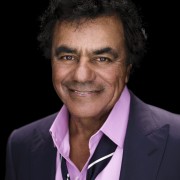Minnesota prosecutors have opted not to chase criminal charges over Prince’s death from an accidental overdose.
Prince passed away in April, 2016 and autopsy results subsequently found he had “exceedingly high” levels of painkiller Fentanyl in his system at the time of his death. However, according to prosecutors, Prince was unaware he was taking Fentanyl. The singer reportedly obtained counterfeit Vicodin pills that were laced with the powerful opioid.
On Thursday, Carver County Attorney Mark Metz revealed there is no credible evidence on how or who Prince obtained the painkillers from, so prosecutors cannot move forward with criminal charges.
It was also revealed Prince had no prescriptions in his name and the Vicodin he took was not prescribed by a doctor.
Metz went on to state there was “no conspiracy to murder Prince”, but the actions of those around him could be seen as suspicious. However, “suspicions and innuendo are categorically insufficient” to file charges, he added.
Last year, it was reported the late singer had medicine prescribed to him under his bodyguard Kirk Johnson’s name. An official affidavit taken by Detective Christine Wagner also indicated Dr. Michael Schulenberg, who was at Paisley Park on the day of Prince’s death, admitted he gave the singer Oxycodone in April, 2016, when his plane made an emergency landing in Illinois after he suffered a medical emergency on a flight home from a concert. He also told a detective he put that prescription in Johnson’s name that day “for privacy” reasons.
Meanwhile, Dr. Schulenberg has reportedly reached a $30,000 (£21,300) settlement with U.S. federal authorities for writing the prescription. He was accused of violating the Controlled Substances Act, according to The Wrap.
For news as it happens follow Noise11 on Facebook
Listen to the Noise11 Music News channel now at iHeartRadio


















